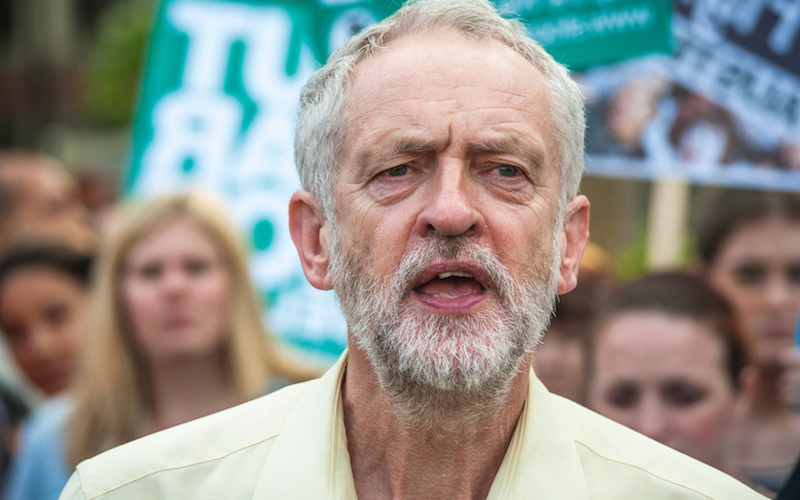
In Defence of Jeremy Corbyn
After losing the seat of Copeland – a Labour Party fortress since its creation, many prominent Labour Party supporters have demanded Jeremy Corbyn step aside as leader. There is no doubt that the party leader must always accept a certain responsibility – especially after such a significant loss. However, Corbyn need not step aside.
In fact Corbyn is obliged to remain as leader. He owes it to the tens of thousands of people who paid twenty-five pounds to register to vote (180,000 in total – most of whom voted for Corbyn) prior to the 2016 leadership election, as well as the more than 250,000 Labour rank and file who supported his campaign in 2015. It would be an insult of Bernie Sanders type proportions, in lieu of their donations and support, simply to appease party elites and the media organs to turn his back on these people.
Corbyn ran on a platform of anti-austerity and the ‘dark horse’ candidate was elected in a landslide, winning nearly 60% of the vote. He advocated policies such as the nationalization of the British Rail, reversing government cuts to corporate tax, investing in infrastructure and industry, introducing a full living wage and imposing rent controls, Corbyn appealed to the British people, assuring the public that no community was to be ‘left behind.’ Since then however, the fractional warring within the Labour Party and media smear campaign against his leadership has proved detrimental.
Continuous factional fighting from pressure groups such as Labour First (who supported the ABC – Anyone but Corbyn campaign) and Labour for the Common Good and Progress have been detrimental. In spite of this and a challenge to his leadership in 2016, the veteran socialist still remains the most popular candidate among Labour Party members, with more than 50% saying they would support him in another leadership election. Until and unless this changes, Corbyn has not only the right but also the duty to remain leader of the Party, a job he was democratically elected to do.
Perhaps the most detrimental of the media campaigns against him came from the ‘left wing’ media. A fundamental inconsistency of the analysis of many commentators continues to be speculation as to the rationale behind Labour’s support or lack thereof. Corybn was immediately blamed for the Copeland loss but little attention is given to the gradual decline in Labour support since its peak in 1997 (with the election of Tony Blair), receiving 51% of the vote in the general election. Since then, New Labour and subsequent Tory governments have seen Labour support dwindle to 50% in 2005, 46% in 2010 and 42% in 2015. It would be foolish to therefore assume that a single person is to blame for a single defeat. Ironically, Corbyn is given little credit for the Labour Party derailing a dangerously popular UKIP campaign in the Stoke by-election.
Many commentators on the British left continue to justify Corbyn bashing by insisting that he is simply an ‘unelectable’ leader. This is despite the fact that a vast majority of the British public and mainstream commentators themselves do not disagree with Corbyn’s policies. For example 58% of the public support renationalization of the railways. Even right wing commentator Peter Hitchen when asked if he supported nationalized railways responded, “immediately.” Unelectable you ask?
For the forces of progress, Corbyn represents political traction gained after years of Tory infiltration. Of course, we must acknowledge that Jeremy will not be around forever but now is not his time to depart; it would be currently too great a risk to create a vacant political space in the Labour Party.
What Corybn represents is important. Like Bernie Sanders in the U.S; Corybn represents hope for a working poor left behind by globalization. Internationally, he has proven himself by campaigning to bring the dictator Augusto Pinochet to justice. More recently, Corbyn has actively opposed the despicable Western led wars in Iraq and Afghanistan, NATO intervention in Libya, drone strikes in Syria and British involvement with the Saudi led destruction of Yemen. He has served as chair of the Stop the War Coalition and stood in solidarity with the Cuba Solidarity Campaign’s struggle to end the economically crippling U.S trade embargo. He is a rare politician who does not understand the meaning of compromise at the expense of principle, something that is essential for those who believe peace is preferable to war and that a better society is possible.
The story of Corybn strangely and somewhat paradoxically echoes Gramscian sentiments. As New Labour slowly dies, the Labour of old struggles to be reborn and under these conditions a great variety of morbid symptoms have appeared.

